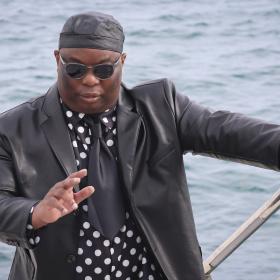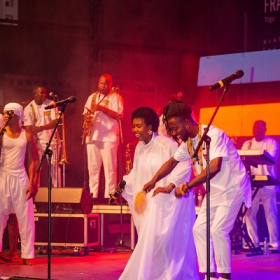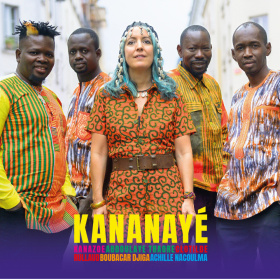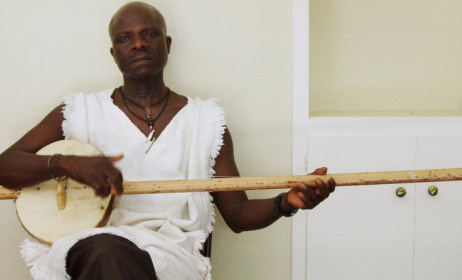African music instrument displayed at American gallery
An ancient West African instrument can now be seen at the Metropolitan Museum of Art in New York.
 Daniel Jatta studied the connection between the akonting and the banjo. Photo: Chuck Levy
Daniel Jatta studied the connection between the akonting and the banjo. Photo: Chuck Levy
The akonting has been referred to as the ancestor to the banjo, an instrument commonly used in American music.
Although it has been the subject of research for decades, it had yet to be included in the Metropolitan Museum of Art. But now, following a three-year reworking of the space, the akonting has made an appearance at the revered art space.
The space, Gallery 681 and tagged Mapping the Art of Music, also hosts several other instruments as played around the world. According to the New York Times, viewers can also see “lutes, lyres, gongs, drums, horns, harps, whistles, Italian violins, Indonesian gamelans, lamellaphones from sub-Saharan Africa, a golden harpsichord seemingly supported by mythical creatures and keyboard instruments small enough to fit in your carry-on luggage”.
The akonting is native to Senegal, Guinea-Bissau and the Gambia, which are home to the famous African instrument, the kora. The akonting is associated with slaves who crossed the Atlantic and took along memories of their own music.
“Instruments survive,” Bradley Strauchen-Scherer, who worked on the gallery’s new look, told the New York Times. “That’s why we spend so much time studying them.”
One of the scholars to have brought the akonting into contemporary study was the Gambian Daniel Laemouahuma Jatta. He connected the sounds of the banjo to an instrument he played years before in the 1970s. This instrument of his youth turned out to be the akonting and Jatta launched into historical research. In 2000, he presented his findings. Although some of those findings have been contested, Jatta’s presentation altered the known history of the banjo as he traced its ancestry to the akonting.
For the Metropolitan Museum of Art, says the New York Times, research carried out before the museum’s reopening showed there isn’t one origin of the world’s music. It showed instead “to what extent people all over the planet were discovering a lot of the same things simultaneously”. Nonetheless, the akonting's origin is not in doubt.






















Commentaires
s'identifier or register to post comments